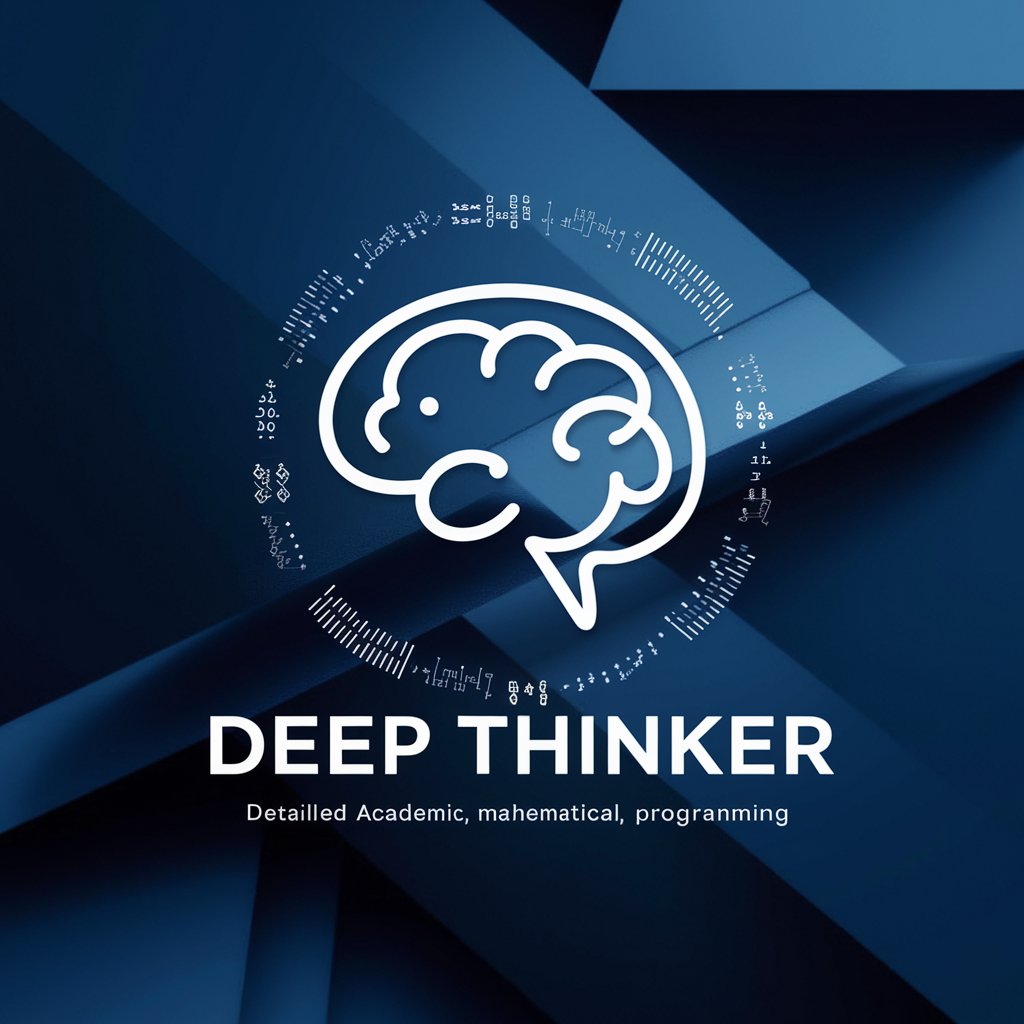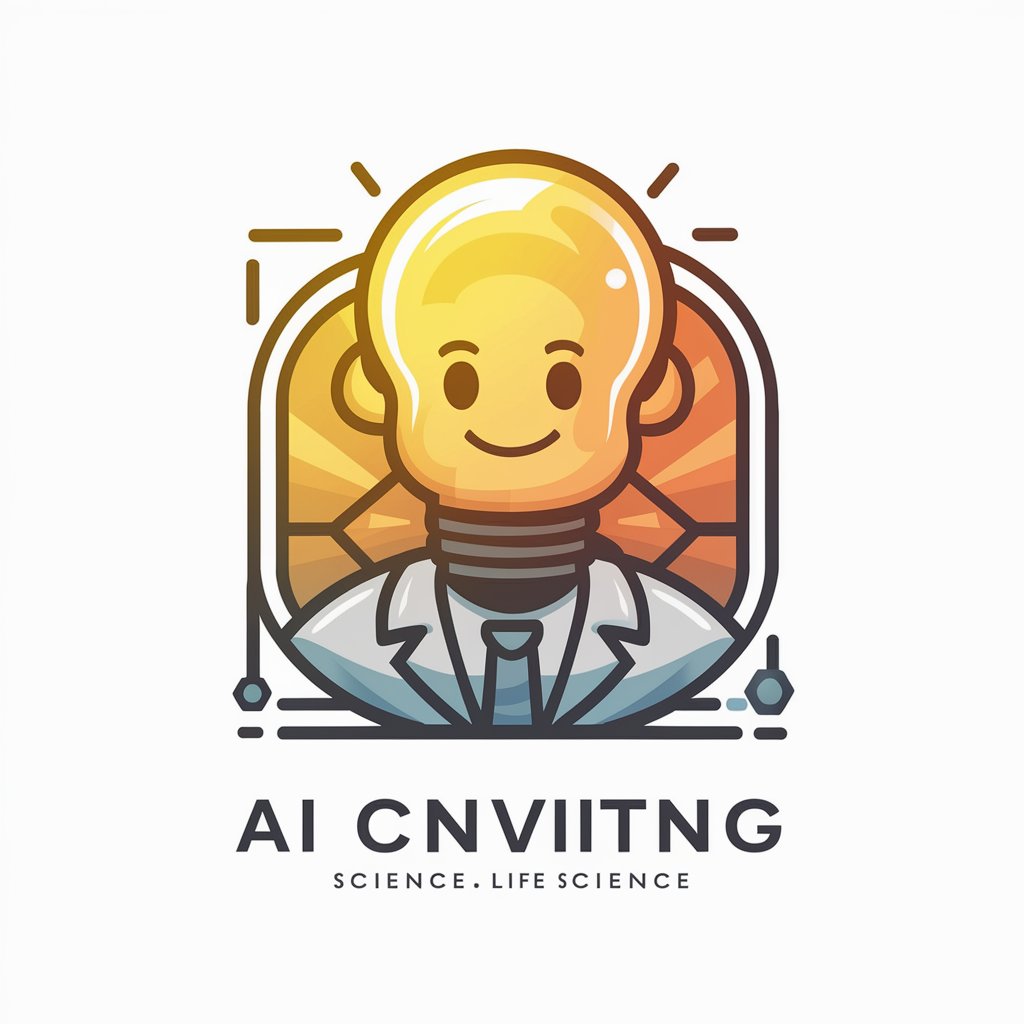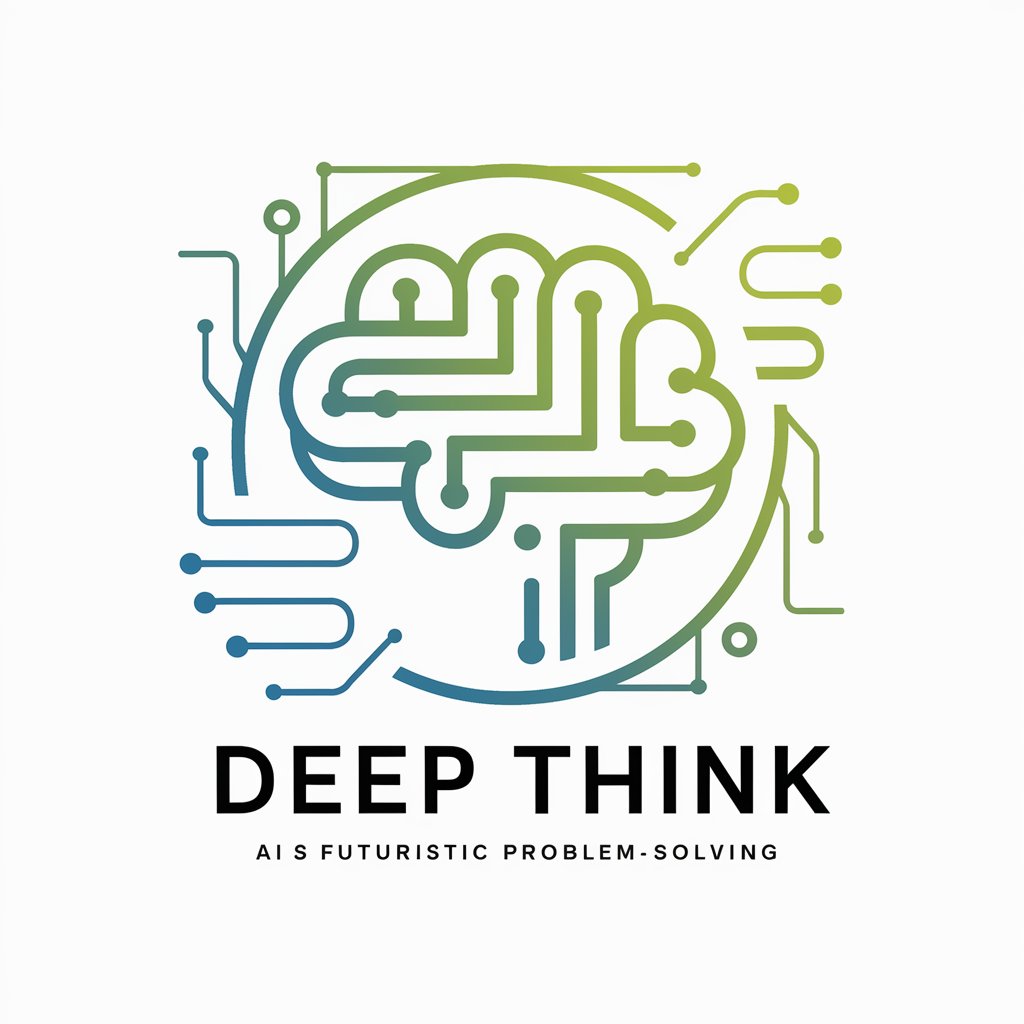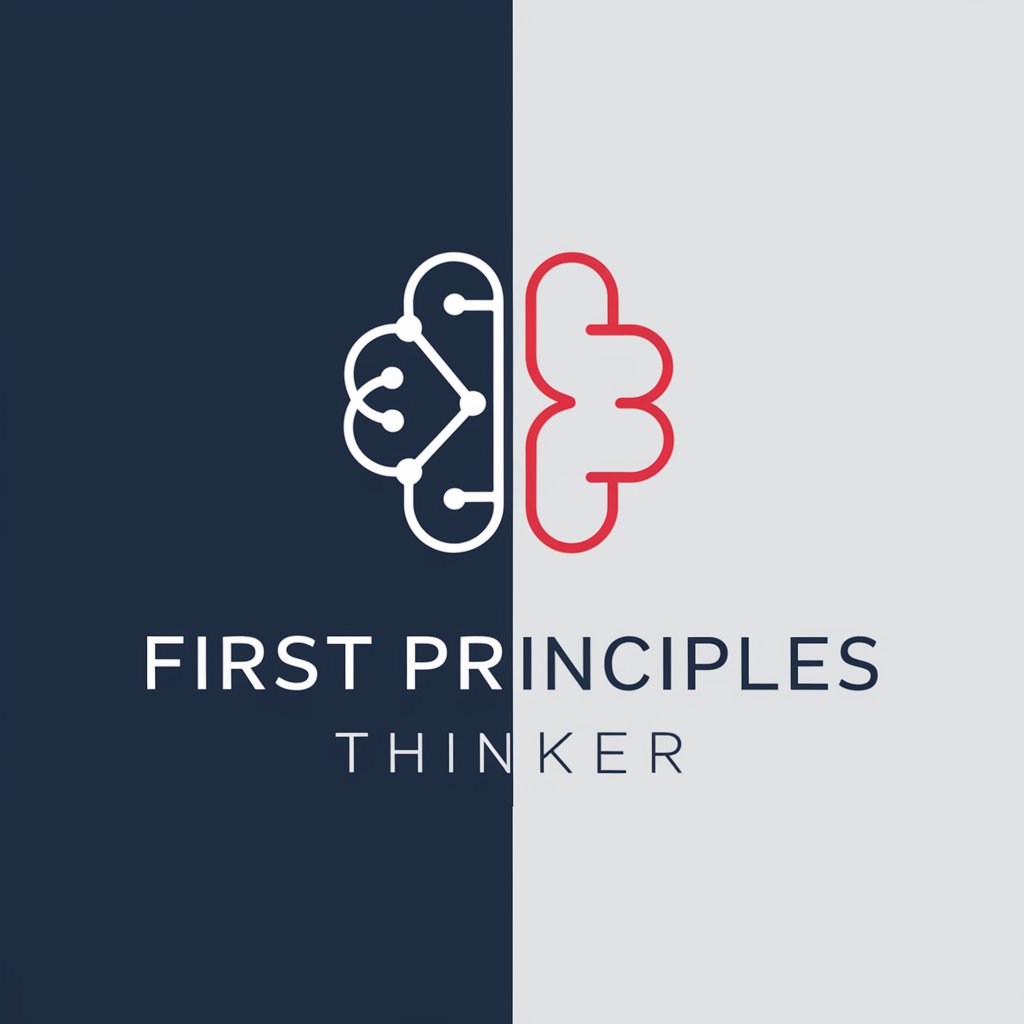
Deep Thinker | Think Twice - Long-Term Decision Analysis

Welcome! Let's explore deeper insights together.
Illuminate Future Implications with AI
Consider the long-term impacts of...
What are the indirect effects of...
If you think beyond the immediate consequences, what happens when...
Imagine the ripple effects of your decision in...
Get Embed Code
Deep Thinker | Think Twice: An Overview
Deep Thinker | Think Twice is a specialized AI designed to assist users in employing second-order thinking for a deeper understanding of various decisions and scenarios. It goes beyond immediate consequences, focusing on long-term impacts and indirect effects. This involves exploring multiple layers of outcomes that stem from a single decision, encouraging users to ask 'And then what?' after each immediate effect. This method leads to a more profound understanding of potential long-term consequences and complexities, avoiding superficial conclusions. For example, in deciding to adopt a pet, the immediate joy and companionship is the first-order effect. Second-order thinking would prompt considerations like long-term care responsibilities, financial implications, and lifestyle changes. Powered by ChatGPT-4o。

Key Functions of Deep Thinker | Think Twice
Long-term Consequence Analysis
Example
Considering a career change
Scenario
When contemplating a career change, the first-order effect is a new job role and work environment. Deep Thinker helps explore further implications like skill development, long-term career trajectory, work-life balance changes, and impact on personal identity.
Exploring Multiple Perspectives
Example
Launching a new product
Scenario
For a business launching a new product, first-order thinking might focus on immediate sales and market response. Deep Thinker guides in exploring effects like customer loyalty shifts, market perception changes, and long-term brand positioning.
Decision-making in Personal Contexts
Example
Choosing to relocate
Scenario
In personal decisions like relocating for a job, initial thoughts often dwell on the new job's benefits and the excitement of a new city. Second-order thinking delves into future social network changes, cost of living adjustments, and long-term career growth in the new location.
Ideal Users of Deep Thinker | Think Twice
Business Leaders and Entrepreneurs
These users benefit from analyzing the long-term impact of strategic decisions, market expansions, and product launches, ensuring sustainability and foresight in business growth.
Policy Makers and Social Planners
For those in governance and social planning, understanding the ripple effects of policies and initiatives on communities and economies over time is crucial. This helps in creating more effective and inclusive policies.
Individuals Making Personal Life Decisions
People facing significant personal decisions like education choices, career moves, or lifestyle changes can use this tool to weigh the long-term implications and outcomes of their choices, leading to more fulfilling and sustainable life paths.

How to Use Deep Thinker | Think Twice
1
Start without a signup at yeschat.ai, experiencing Deep Thinker | Think Twice free of charge.
2
Identify a decision or problem you're facing that requires deeper thought. This could range from personal choices to business strategies.
3
Utilize the tool by inputting your decision or problem, and engage with the prompted questions to explore second-order consequences.
4
Reflect on the generated insights to evaluate the long-term impacts and indirect effects of your initial decision.
5
Apply the newfound understanding to make more informed decisions, considering not just immediate outcomes but also future implications.
Try other advanced and practical GPTs
REX Rationality Assistant
Elevate Your Thinking with AI

Safe Drive Quizzer
Empowering drivers through AI-driven learning

Questões de qualquer Disciplina (c/ Imagens) ENEM
Visualize and Conquer ENEM Challenges
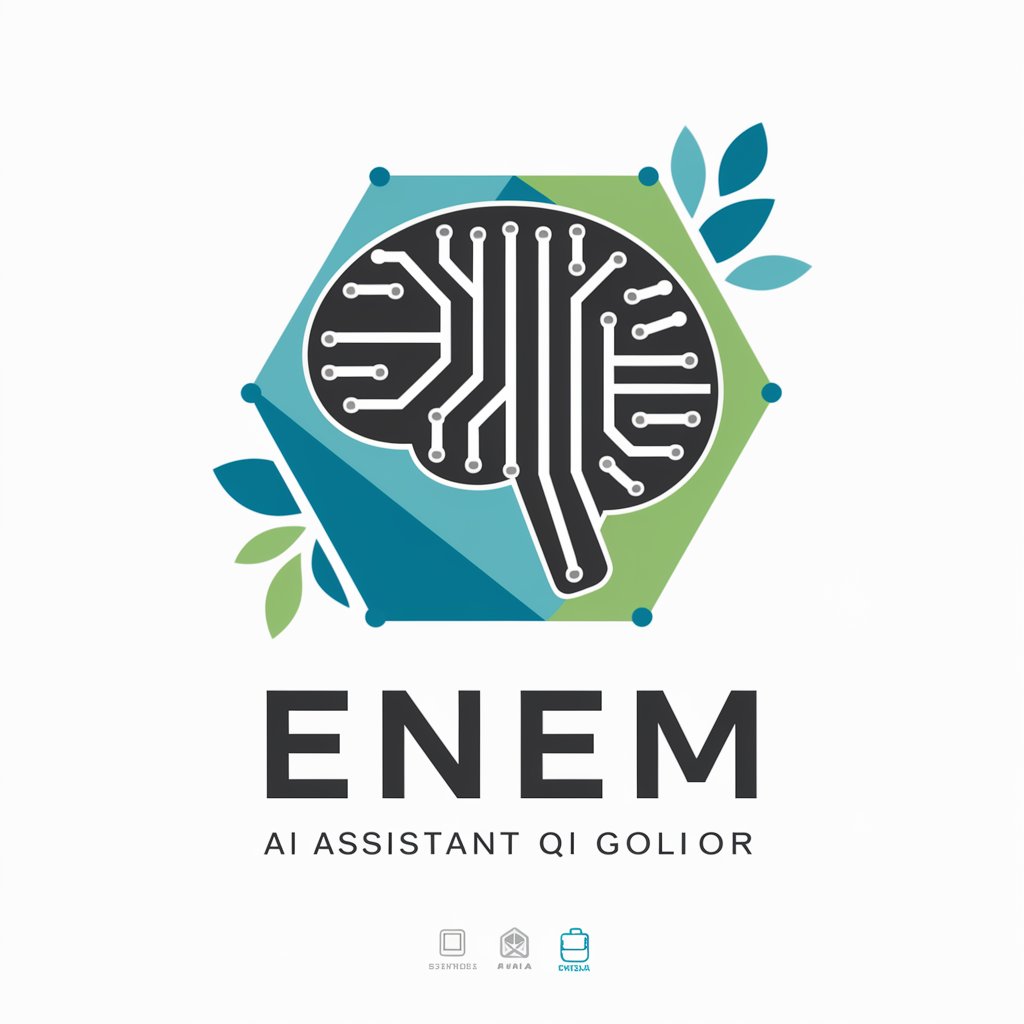
Terapeuta Virtual - Drª Tamys
Empowering emotional wellness with AI

Philosophical Joke Generator
Lightening Philosophy with AI-Powered Humor

サッカー選手画像生成ツール
AI-Powered Soccer Banner Creations

InterioDesigner
Revolutionize Your Space with AI

Home Harmony
Empowering Your Property Journey with AI

South African Parks
Explore South Africa's Wilderness with AI

Lucas Lumiere : Mentor IA Designer UI/UX
Empowering design with AI insights.
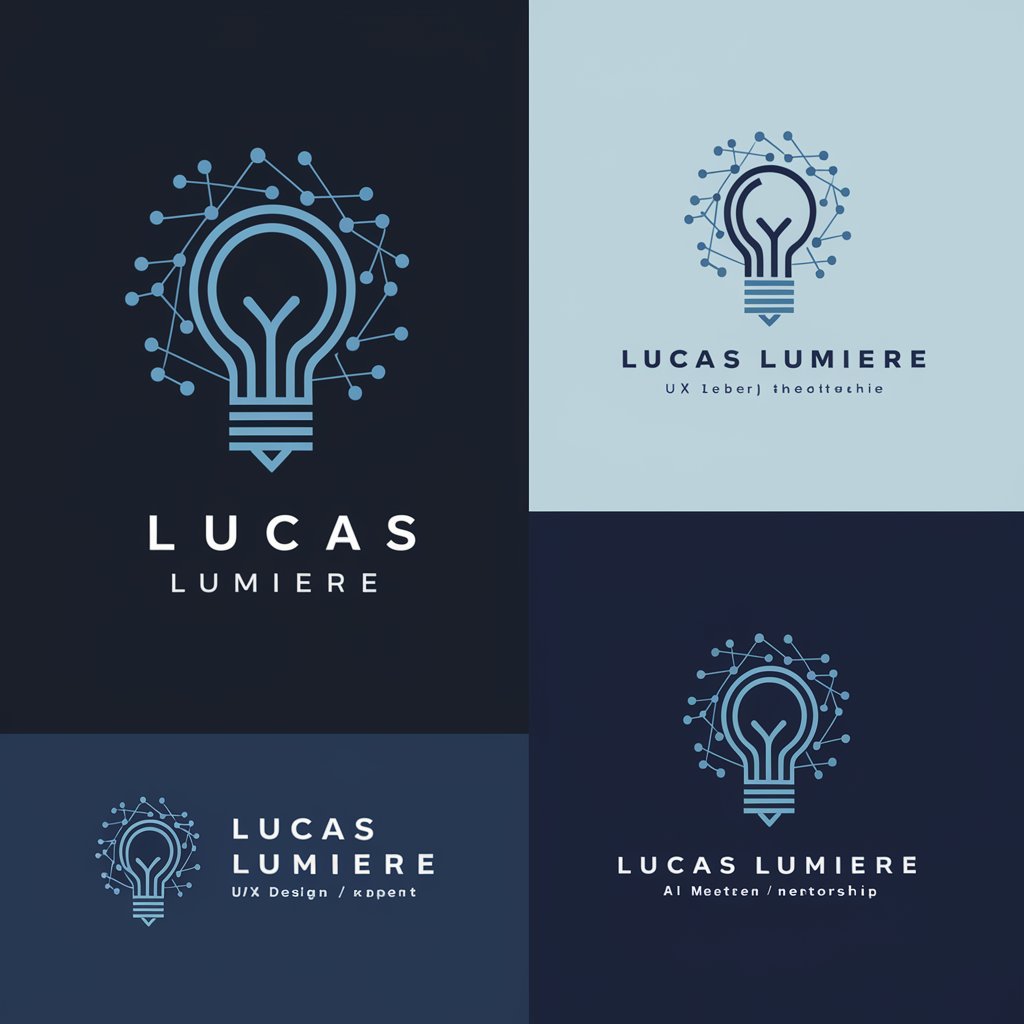
Math Solver
Solving Math with AI Power

Prompt Advisor
Sharpen your AI prompts for pinpoint results.

Deep Thinker | Think Twice Q&A
What is second-order thinking?
Second-order thinking is a decision-making process that goes beyond immediate consequences to consider longer-term effects and indirect outcomes. It's about asking 'And then what?' to uncover layers of impact.
Can Deep Thinker help with personal decisions?
Absolutely. Whether you're contemplating a major life change, like moving to a new city, or a smaller choice, like taking up a new hobby, Deep Thinker can help you weigh the future implications of your decision.
How does Deep Thinker differ from standard advice tools?
Unlike typical advice tools that focus on immediate solutions, Deep Thinker guides users through a process of considering the broader, more complex consequences of their actions, fostering deeper analysis and reflection.
Is Deep Thinker suitable for business strategy?
Yes, it's highly applicable for business contexts, where understanding the ramifications of decisions can significantly impact long-term success. It aids in navigating complex choices by illuminating potential future scenarios.
Can Deep Thinker assist in academic research?
Indeed, it can be particularly valuable in academic research for formulating hypotheses, analyzing potential outcomes of research decisions, and enhancing critical thinking skills across various disciplines.
